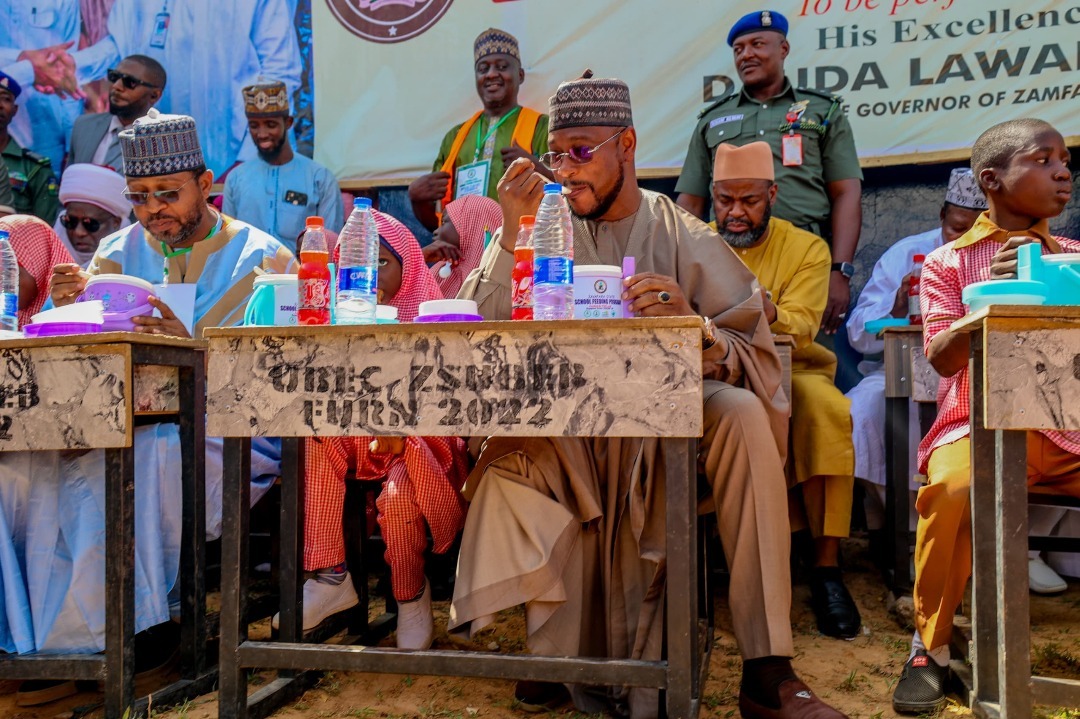Zamfara State Governor, Governor, Dauda Lawal, on Thursday, flagged off a pilot school feeding initiative aimed at curbing the alarming rise in the number of out-of-school children across the state. The programme was launched at Dan-Turai Primary School in Gusau and is backed by development partners and non-governmental organisations (NGOs).
The initiative is designed to increase primary school enrolment and retention by tackling two of the most significant barriers to education in the region—hunger and malnutrition.
A statement by the Governor’s spokesperson, Sulaiman Bala Idris, noted that Lawal reiterated his administration’s unwavering commitment to reversing the trend of low school attendance and addressing what he described as a deep-rooted educational crisis in Zamfara.
“This pilot feeding programme represents more than just an intervention,” Lawal said during the launch. “It is a clear demonstration of our resolve to make access to quality education not just a right, but a lived reality for every child in Zamfara.”
The Governor highlighted ongoing collaborations with agencies such as UNICEF and the World Bank through the Adolescent Girls Initiative for Learning and Empowerment (AGILE) project, aimed at improving access to education through targeted investments and community-based interventions.
He disclosed that the Ministry of Education, Science and Technology had recently partnered with UNICEF to establish a technical committee comprising agency heads and stakeholders.
The committee is currently carrying out assessments across all 14 local government areas to identify children who are not enrolled in school and facilitate their reintegration.
As part of the pilot phase, the FINPACT Development Foundation will fund meals for 1,000 pupils in the local government areas of Gusau, Maru, Anka, and Talata Mafara.
Additionally, the International Centre for Economic Development will sponsor feeding for 3,300 pupils across Gusau, Shinkafi, and Talata Mafara.
“These partnerships underscore our inclusive approach,” Lawal said. “Our goal is not only to feed pupils but to keep them in school long enough to benefit from sustained, quality learning.”
He called on donor agencies and education stakeholders to scale up support and develop more programmes that enhance access to learning, particularly in vulnerable and underserved communities.
The initiative comes as Nigeria grapples with one of the highest rates of out-of-school children globally.
According to recent data, millions of school-age children remain outside the formal education system, with insecurity, poverty, and poor infrastructure cited as major contributing factors—challenges particularly acute in Zamfara.
Governor Lawal expressed hope that the school feeding programme would serve as both a model and a motivation for further reforms in education delivery across the state.






